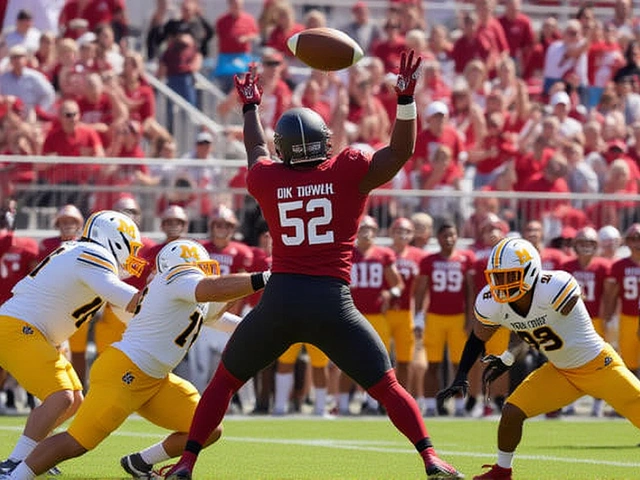
Opportunities in Sports: What You Can Gain and How to Grab Them
When you think about sports, the first thing that pops into mind is the game itself. But behind every match, there are dozens of chances to improve your life. Whether you’re chasing a professional career, hoping to boost a college application, or looking for a legal pathway, sports open doors you might not expect.
Let’s break down the biggest opportunities you can find right now and how you can act on them.
Career Paths Inside and Outside the Arena
Most fans assume the only way to earn a living in sports is to be an athlete. That’s a myth. The NBA playoffs article on our site shows how analysts, statisticians, and broadcasters play a huge role in a Game 7 showdown. If you love crunching numbers, try sports analytics; if you’re a smooth talker, commentary or podcasting could be your lane.
Even behind‑the‑scenes jobs, like event management or ticket sales, are booming. A big tournament raises demand for staff who can handle crowds and logistics. Look for internships with local clubs or volunteer at community events to get that experience on your resume.
College Admissions and Scholarships
Wondering if playing sports will help you get into a top‑tier college? The article “Do you need to play sports to get into a top‑tier college?” explains that athletics aren’t a requirement, but they can give you an edge when combined with strong grades and community work. If you’re a high‑school athlete, start building a solid athletic profile early—track your stats, get coach letters, and showcase leadership roles.
Many universities also offer sports‑specific scholarships for talents beyond the major leagues, such as e‑sports, rowing, or track. Talk to your guidance counselor about the scholarship deadlines and keep your academic record clean, because coaches look for disciplined students.
For non‑athletes, consider leveraging your sports knowledge. Write a blog post about game analysis (like the Timberwolves vs. Nuggets preview) and submit it to the school newspaper. Demonstrating expertise can impress admissions committees looking for unique voices.
Legal and Immigration Opportunities
Sports can intersect with immigration in surprising ways. The “TPS Terminations Paused…” story highlights how temporary protected status (TPS) can affect thousands of immigrants, including those who work in sports‑related jobs. If you’re an immigrant looking for stability, staying informed about legal updates is crucial—work permits often hinge on these decisions.
Some countries offer special visas for elite athletes or coaches. Research whether your sport qualifies for a visa category, gather proof of achievements, and contact an immigration attorney who knows the sports field. Even if you’re not a pro, community leagues can sometimes serve as a bridge to these programs.
Getting Involved and Making the Most of Events
Big events like the World Cup create a wave of side opportunities—temporary jobs, fan‑experience tickets, and local business boosts. The “Why is the World Cup such a big event?” article notes its power to unite cultures and markets. If you live near a host city, sign up for volunteer programs. It’s a great way to network, earn free passes, and add a standout experience to your resume.
Don’t overlook small‑scale chances either. Local high‑school games often need volunteers for score‑keeping or streaming. Those roles can lead to paid gigs with larger leagues as you build a reputation.
Bottom line: sports offer a web of opportunities—career, education, legal, and experiential. Keep an eye on news, sign up for newsletters, and be ready to act when a chance pops up. The more you engage, the more doors will swing open.




